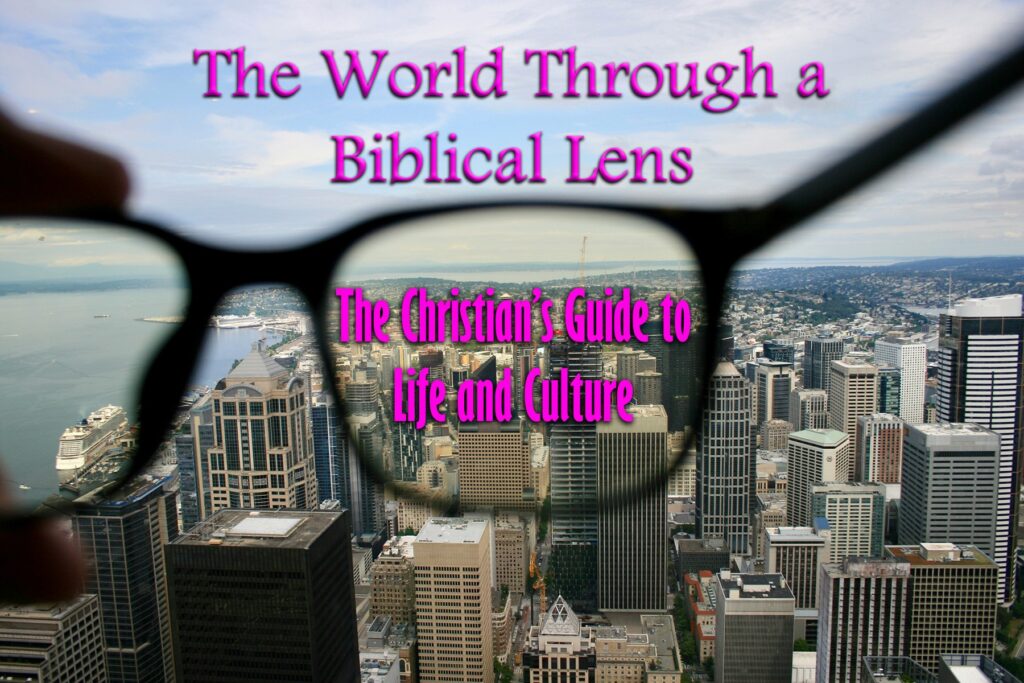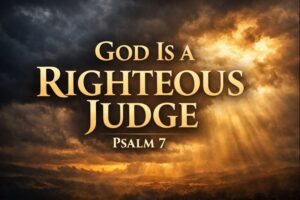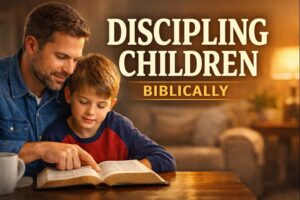⏱️ Estimated Reading Time: 9 min read
Standing Strong in a Hostile Culture
How can we stand strong in an increasingly hostile culture to Christianity? A quick glimpse on social shows us that every area of biblical truth is under attack in our day. Specifically, in this article, we will address the doctrine of Creation. This vital doctrine is assaulted on every side since it is the foundation for every area of life. If you attack the opening chapters of Genesis, you attack every major doctrine in the Bible. These attacks are not new or uncommon. Christians have faced a hostile culture in many eras of history. Thankfully, God has not left us alone without tools in our hands to serve Him in our day.
The Word of God gives the people of God clear instruction on how we ought to live in these evil days. In 1 Peter 3:15, the Apostle Peter writes: “In your hearts honor Christ the Lord as holy, always being prepared to make a defense to anyone who asks you for a reason for the hope that is in you.”
In this article, I will argue that to be an effective evangelist in our godless, pluralistic age, we must be governed by a biblical framework of the doctrine of Creation.
Establishing a Biblical Framework
Our evangelistic efforts must begin where the Bible begins, namely, Creation. Let me show you this in several steps. First, we will establish a framework by which we must view the world and history. Second, we will see how the apostle Paul uses said framework in Acts 17 to get to the gospel of Jesus Christ. Third, we will conclude with three lessons from this brief study.
To begin, an integral part of defending the Christian faith is to build your life Jesus Christ and His created order. Sadly, in many seminaries future pastors and missionaries are not taught these basic principles that form the foundation for the whole bible and all of history. In other words, to defend the faith, we need to understand and articulate the Christian worldview revealed in the Bible. Concerning this, Dr. Stephen Wellum remarks:
A worldview is “an overall story that seeks to explain why we are here (origins), what reality is (metaphysics), whether truth and knowledge is possible (epistemology), and whether certain actions are right or wrong (ethics). Since the task of theology is to apply Scripture to all of life, to proclaim the gospel to the nations, and to challenge the unbelief of people who stand opposed to the truth of God’s word, we must learn to compare and contrast a Christian view of the world with non-Christian views.”[i]
In simple terms, to proclaim the gospel of Jesus Christ effectively in our day, we must understand the storyline of the whole Bible. The biblical worldview can be seen in four parts:
- 1) Creation; (2) Fall; (3) Redemption; and (4) New Creation.[ii]
For the sake of this article, we will only consider the first element, namely, Creation. However, each aspect is vital in our apologetics and evangelism. After establishing a biblical framework for the world, we then, as Dr. Wellum writes, “set the Christian view over against other views by unpacking its truth, coherence, unity, and beauty as we call all people to repent and believe.”[iii] The goal in establishing the doctrine of Creation in our apologetics is to bring men face-to-face with Jesus Christ our Lord and Savior, that they may receive eternal life (John 3:16).
Paul’s Evangelism in Acts 17
Next, as we study the evangelistic labours of the Apostle Paul in Acts 17, we see that he was aware of two different audiences. At the foundational level, Paul was dealing with two different worldviews. For example, with a Jewish audience, Paul knew that he was working with a common creational foundation, rooted in the Old Testament Scriptures. For that reason, he went directly to preaching Christ. In Acts 17:2-3, we see that “Paul went in, as was his custom, and on three Sabbath days he reasoned with them from the Scriptures, explaining and proving that it was necessary for the Christ to suffer and to rise from the dead, and saying, “This Jesus, whom I proclaim to you, is the Christ.”
On the other hand, when Paul entered Athens, he realized that he was evangelizing a people who had no biblical, creational framework. The Athenians were steeped in paganism, idolatry, and religious pluralism. To get to Jesus Christ, Paul established the biblical worldview framework so that Christ would be properly understood. In the text, Creation (Acts 17:22-28), Fall (Acts 17:30-31), Redemption (Acts 17:30-31), and New Creation (Acts 17:31) are all present. To narrow our focus down, we will simply glance at Paul’s creational foundation.
First, Paul understood that there is no such thing as religious neutrality. You either worship the true and living God through Jesus Christ or you worship false gods. The Athenians were very religious people, but it was a religion steeped in paganism:
“So Paul, standing in the midst of the Areopagus, said: “Men of Athens, I perceive that in every way you are very religious. For as I passed along and observed the objects of your worship, I found also an altar with this inscription: ‘To the unknown god.’ What therefore you worship as unknown, this I proclaim to you” (Acts 17:22-23).
Second, after exposing idolatry, Paul goes back to Creation to establish the distinction between the Creator and His Creation. Paul takes the Athenians back to Genesis 1:1. The One Paul is proclaiming is “The God who made the world and everything in it, being Lord of heaven and earth, does not live in temples made by man, nor is he served by human hands, as though he needed anything, since he himself gives to all mankind life and breath and everything” (Acts 17:24-25). The Lord of heaven and earth is the Sovereign Creator of all things, who spoke the entire universe into existence out of nothing by the power of His Word. He is the independent and self-sufficient Lord of heaven and earth. He did not create out of necessity, but out of His mere pleasure and will. He is the uncreated creation who sovereignly creates, rules, and sustains all of His creation for His glory:
“… And he made from one man every nation of mankind to live on all the face of the earth, having determined allotted periods and the boundaries of their dwelling place, that they should seek God, and perhaps feel their way toward him and find him. Yet he is actually not far from each one of us, for “‘In him we live and move and have our being’; as even some of your own poets have said, “‘For we are indeed his offspring.’” (Acts 17:24-28).
Within the doctrine of Creation, the Apostle Paul also lands on the doctrine of man. God has created mankind in His image, male and female, for His glory (Genesis 1:26-28). We have value, dignity, and worth because we have been made in the image of God. We have been made to know God, enjoy God, and glorify God forever.
Third, after establishing the doctrine of Creation, Paul moves to the doctrine of the Fall, Redemption, and New Creation:
“The times of ignorance God overlooked, but now he commands all people everywhere to repent, because he has fixed a day on which he will judge the world in righteousness by a man whom he has appointed; and of this he has given assurance to all by raising him from the dead” (Acts 17:30-31)
Three Final Lessons for Today
Having established a functional framework for a biblical worldview from Acts 17, what lessons can we learn today as Christians? Let me set before you three brief lessons to encourage your heart as you live for Christ in a hostile culture.
Lesson 1: Take Heart– God is Sovereign
First, we must never lose heart in the days in which God has appointed us to live in. The doctrine of Creation teaches us that God is outside of Creation. He alone is the sovereign, undisputed King of kings and Lord of Lords. Right now, He is fulfilling His purposes for the glory of His great Name and the good of His people. Despite the pushback in the culture, Christ is extended and building His Church.
Lesson 2: Start with the Foundations in Evangelism
Second, we must never assume that someone has a biblical framework in our evangelism. This means that we need to do some foundational work in our evangelism. Before we get to Jesus Christ, we must first establish the three big questions: How did I get here? Who am I? And where am I going? Or, said differently, we must set before our hearers who God is, who we are, what ruined us, who can save us, and what is to come for all who trust in the glorious Savior?
Lesson 3: Worship Through Evangelism
Third, we must serve Christ and proclaim His name as an act of worship. Again, I remind you of 1 Peter 3:15: “In your hearts honor Christ the Lord as holy, always being prepared to make a defense to anyone who asks you for a reason for the hope that is in you.” We must begin each day honoring Christ the Lord as holy in our hearts. This means that we must actively pursue a closer walk with Jesus Christ. We must set our affections on Him each day. When the embers of our heart are stoked by fellowship with Christ, the reason for our hope in Him will flow out of us freely.
Conclusion
To engage our culture with the gospel, we must return to the foundations. The doctrine of Creation isn’t optional—it’s essential to a biblical worldview. It frames how we see God, ourselves, and the world. As Paul shows us, a Creation-based worldview allows us to communicate the gospel clearly and faithfully in a world that desperately needs truth. Let us live boldly for Christ, proclaiming His name with confidence, compassion, and conviction.
[i] Stephen J. Wellum, Systematic Theology: From Canon to Concept, vol. 1 (Brentwood, TN: B&H, 2024), 396.
[ii] Building off of Francis Schaeffer, Dr. Stephen Wellum in From Canon to Concept defines a biblical worldview in four parts: (1) Creation; (2) Fall; (3) Redemption; (4) New Creation. As a case study, Dr. Wellum goes to Paul and the Athenians in Acts 17.
[iii] Wellum, Systematic Theology: From Canon to Concept.

The World Through a Biblical Lens: The Christian’s Guide to Life and Culture
Joshua J. Mills is married to his beloved Kyla and they have two children: Isaac and Lydia. Outside of the home, Joshua has the privilege of serving as pastor at Trinity Baptist Church (Burlington, Ontario) and as a guest lecturer through Carey International University of Theology.




